 Somehow, this play feels as though it deserves a bit more thought and commentary than some of the other Shakespeare posts I’ve done. So, since the lovely Melissa Siah (also known as Gardiner, the Evil Catholic Bishop of Winchester) took a lot of photos of the food yesterday, some of which are remarkably stunning and arty, I think I shall take advantage of this and use some of the more artistic ones to illustrate my Shakespearean thoughts, and the more straightforward ones to illustrate the important bragging about food…
Somehow, this play feels as though it deserves a bit more thought and commentary than some of the other Shakespeare posts I’ve done. So, since the lovely Melissa Siah (also known as Gardiner, the Evil Catholic Bishop of Winchester) took a lot of photos of the food yesterday, some of which are remarkably stunning and arty, I think I shall take advantage of this and use some of the more artistic ones to illustrate my Shakespearean thoughts, and the more straightforward ones to illustrate the important bragging about food…
So, as you may have gathered by now, Shakespeare wrote this play called Henry VIII (which also goes by the name of All Is True). He wrote it in the reign of James I, Henry’s great-nephew, which makes a certain amount of sense – no matter how careful you are, writing a play about the father of a reigning monarch is probably not a longevity-enhancing plan – and it has to be said, it does contain more than one Message From Our Sponsors.
Cranmer prophesies the glorious reign of Elizabeth I, and then hints that her successor (James) will be even greater. Anne Boleyn is such a perfect model of womanhood that even Shakespeare gets bored with her and doesn’t give her any lines after she becomes Marchioness of Pembroke Henry in Act 2 (protesting all the while that she does not want to be Queen, oh no, she certainly does not).
Even Henry manages to be a more sympathetic character than one might expect, if you don’t mind his tendency to go along with whoever he spoke to most recently, no matter how inconsistent he is. Though he does start developing one or two statesmanly qualities once he is out of the shadow of Wolsey and, perhaps, Katherine of Aragon.

Meatballs disguised as pears. This was a meat-heavy feast by my standards, but the theme seemed to call for it.
On the other hand, by mid-play, we were all feeling as though the word ‘conscience’ had developed a double meaning. Henry’s is very tender, apparently. (These days, you can get pills for that).

There's a really dodgy visual pun lurking here, but really I just wanted to show off the pretty magenta carrots I grew.
Though, on a slightly more serious note, I just went through looking for some of Henry’s dodgier lines about his conscience, and boy does that word get used a lot in this play – between all the politically-minded clergy and the religious and political upheavals and the consciences of Henry, Katherine and Anne, there’s a lot of anxiety going around on this score.
The big surprise in this play is how sympathetic Katherine is as a character. I didn’t think Shakespeare would be able to make her that impressive, given the whole Protestant vs Catholic thing. In addition to being the brains of the family, she has a wonderfully dignified, Queenly manner, and manages to steal every scene she is in. She has a magnificent way of really tearing strips of Henry and Wolsey, all the while being a humble, meek and obedient wife, a poor ignorant woman, and a stranger in this land – who argues better than any of the supposedly educated and brilliant men in the play. And the core of emotion underneath it – the terrible fear for what will become of her, the sense of betrayal after more than twenty years of marriage, and the absolute conviction that her marriage is real and cannot simply be unmade for convenience, with the anger that this produces… Honestly, I think she’s one of Shakespeare’s best characters.
Or at least, that’s my excuse for continually forgetting which other characters I was playing because I was so immersed in Katherine.
Wolsey is a lot of fun, largely because he is convinced that he is the hero of this play, and he manages to convince the play of this for a while – his final scenes in Act III feel like the hero’s final speeches at the end of a tragedy, and it feels quite disconcerting when the play continues on without him. And Gardiner (Bishop of Winchester) gets to spend a lot of time being Catholic And Evil.
So yes, a surprisingly interesting play – after watching the BBC version, I had been rather dreading this one, but it came together well. It didn’t hurt that our King Henry is an extremely good musician, who kept wandering over to the piano to provide incidental music for visions, processions, etc (though the less said about ‘Stand By Your Man’ as a funeral march, the better, and we aren’t even going to discuss all the trumpets, which had a tendency to turn into 20th Century Fox, or the ABC News theme). This was surprisingly effective.
As for the food (which is, after all, what you’re here for), it went well, and there was enough of it, despite my oft-laughed at concerns to the contrary. We had bread and King Island cheese and Chicken à la King for King Henry.
It turns out that I find chicken à la King a bit dull, but apparently the flavour was fairly authentic (it’s basically chicken with mushrooms and pimentos and almonds in a sauce made of butter, flour, stock and sherry – we had it in vol au vents for easier eating).
We also had little meatball ‘pears’, each with a grape in the middle, because it’s not an Elizabethan feast if you don’t have something disguised as something else and if you don’t have sweet and savoury mixed together. They looked rather adorable, if I say so myself.
Then there were arancini, which apparently were traditionally coloured purple or yellow in Renaissance times. This was almost irresistible, but I decided to restrain myself on this occasion, not least because I was hoping that if I put enough saffron in, they would end up bright yellow anyway. No such luck, I fear, but they were delicious nonetheless.
I found a recipe for ‘Lemon Sallet’ in one of my Elizabethan books. It’s basically lemon slices and blanched lemon zest tossed with a little sugar and left to marinate for an hour. Then you sprinkle coloured sugar over the top (that, i did not resist) and serve it, allegedly with olives and bread.
I wasn’t convinced by the olives and bread part, but I’m told it was great with the arancini. I rather liked it on its own – it was very lemony and just barely not too sour to eat.
We also had an Elizabethan Garden Salad, which was a little less picturesque and a little more completely insane than normal, as I underestimated how high the pile would get on that plate. It’s still a rather lovely salad though, with lots of greens from our garden, croutons, dried fruit and dates and a vinegary dressing.

My garden actually does look a bit like this. And the rosemary and lemons are in fact things I grew myself.
I was feeling as though there was a lot of rich, heavy food going on here, so we also had the traditional vegetable platter, with colourful radishes and little magenta carrots from our own garden!
And then I couldn’t resist making that lovely roman cheese and herb dip again, because all those vegetables needed a dip of some kind, don’t you think?
For sweets, the most important thing, naturally, was the Queen Cakes, which is just an old-fashioned name for cupcakes. Being the purveyor of bad taste that I am, I had to decorate the cakes with the initials of Henry’s queens and symbols of their fate – annulled (not divorced!), beheaded, died, annulled (they just didn’t do divorce, OK?), beheaded, survived. And of course some fresh fruit makes everything nicer.
Cardinal Wolsey had to have his Cardinal Cake, which is basically a sponge, and a very nice one, painted with warm apricot jam. I used the recipe from Nigella’s website, though I don’t think the recipe is actually hers. Either way, it was lovely – very tender and tasty. I had planned to crystallise rose petals from my Rose de Rescht bush (the flowers are used to make rosewater and have a wonderfully deep, intense rose scent), but I ran out of time, so I just let them dry and scattered them over the cake to look pretty.
I meant to serve a ricotta and cherry dip with the cardinal cake, but I forgot. It ended up on the table more or less untouched, which was a real pity.
Then, of course, we had to have the Maids of Honour, which are a tart shell filled with jam and then a mix of almond meal, eggs, sherry and sugar (frangipane?). I believe they are also sometimes known as Ladies in Waiting, making them doubly appropriate for Anne Boleyn.
Ginger hearts seemed somehow necessary, too. There had to be some sort of spice-based dessert in this meal, and hearts just seemed right for this play.
And who could resist a name like Old English Matrimonials for a play like this one? These are a mixture of flour, oats, coconut, sugar and butter, half of which is pressed together to make a base and spread with jam, and the other half of which is sprinkled on top. Apparently the matrimonial part is because they are rough in texture and one has to take the rough with the smooth.
And that was about it, actually. I do find it rather ironic to be cooking this much cake for a play about a king who actually made laws regulating the amount of sugar that could be used in cakes, but hey, he’s no king of mine. And, as my alter-ego Katherine, I think I deserve a little bit of rebellion.
Especially after cooking for two days straight.

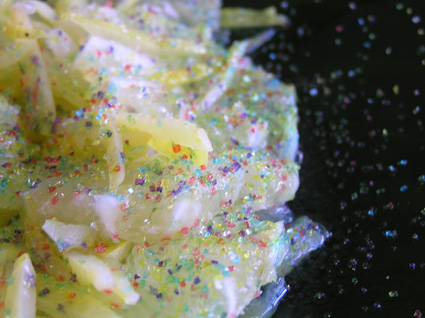
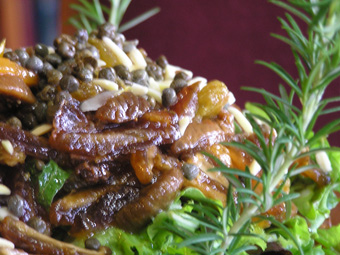
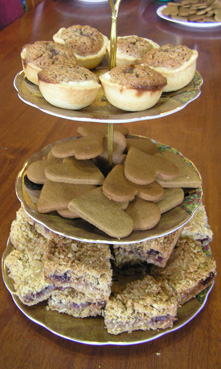
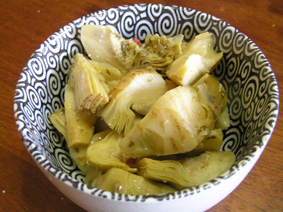
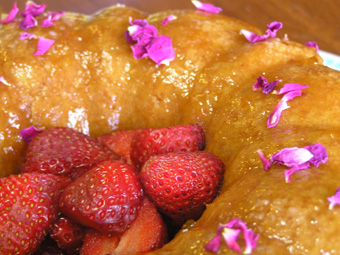

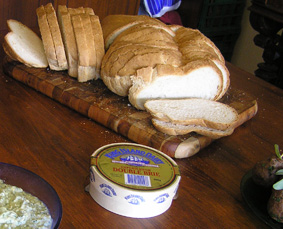


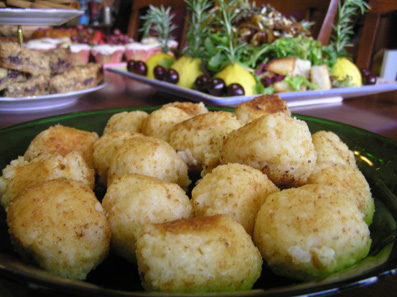
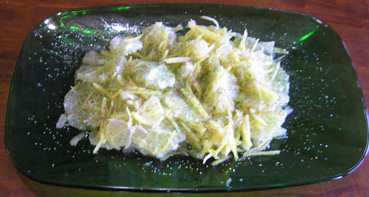

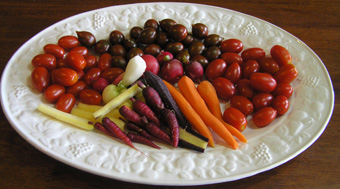
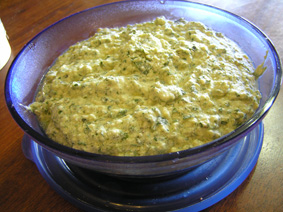

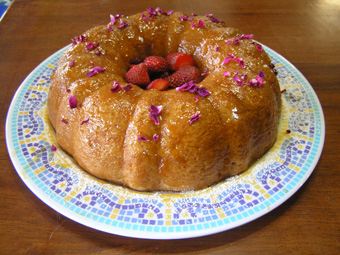
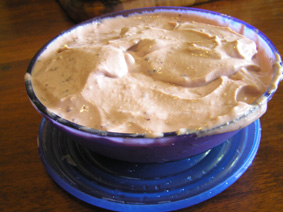



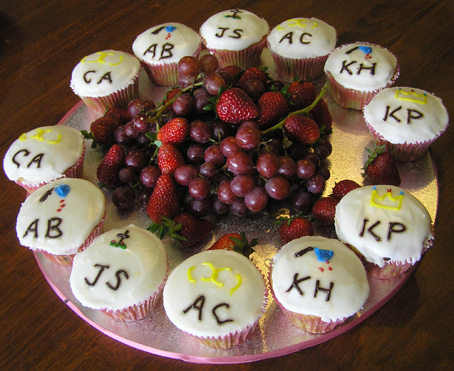

10 comments for “Henry VIII!”